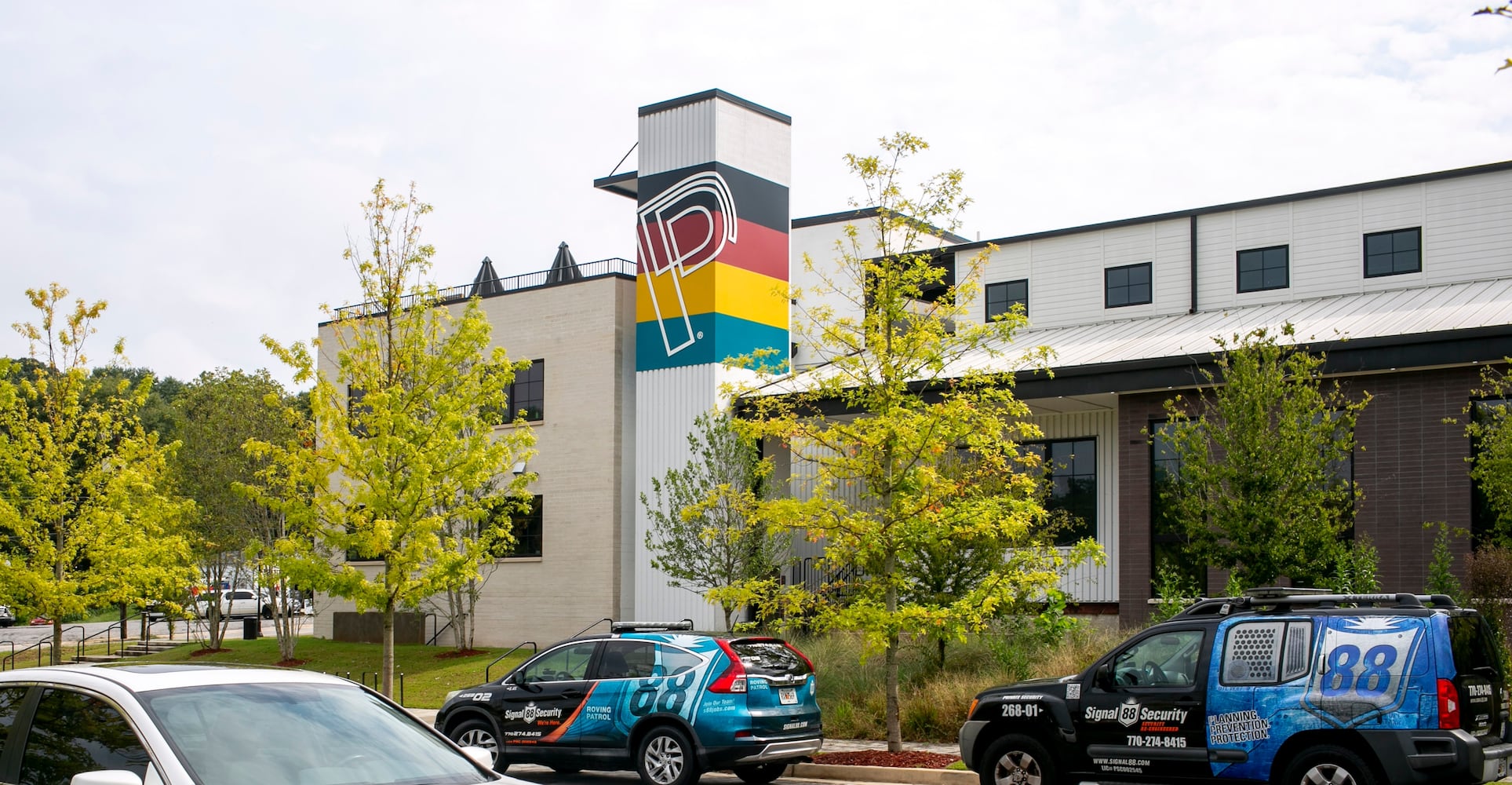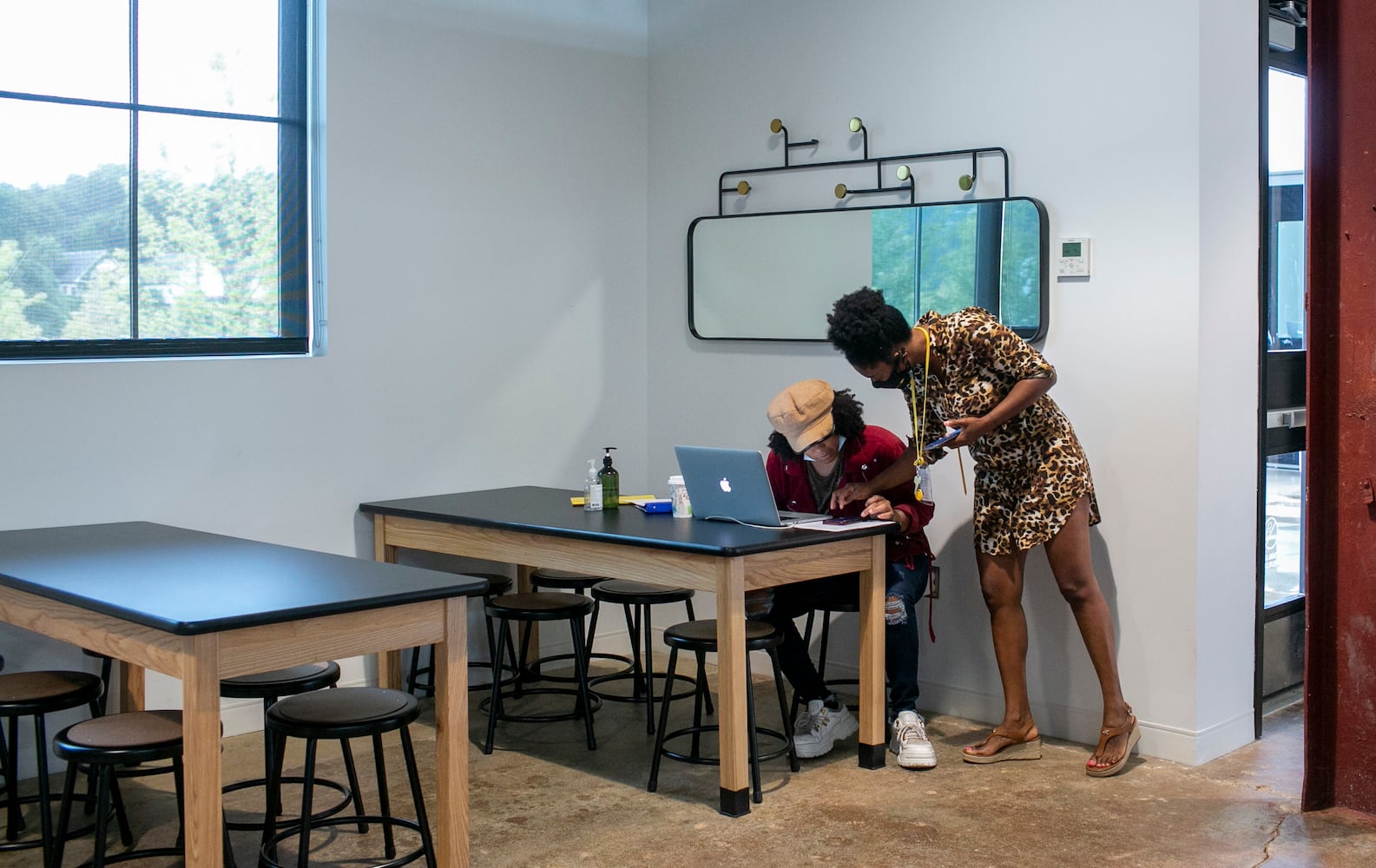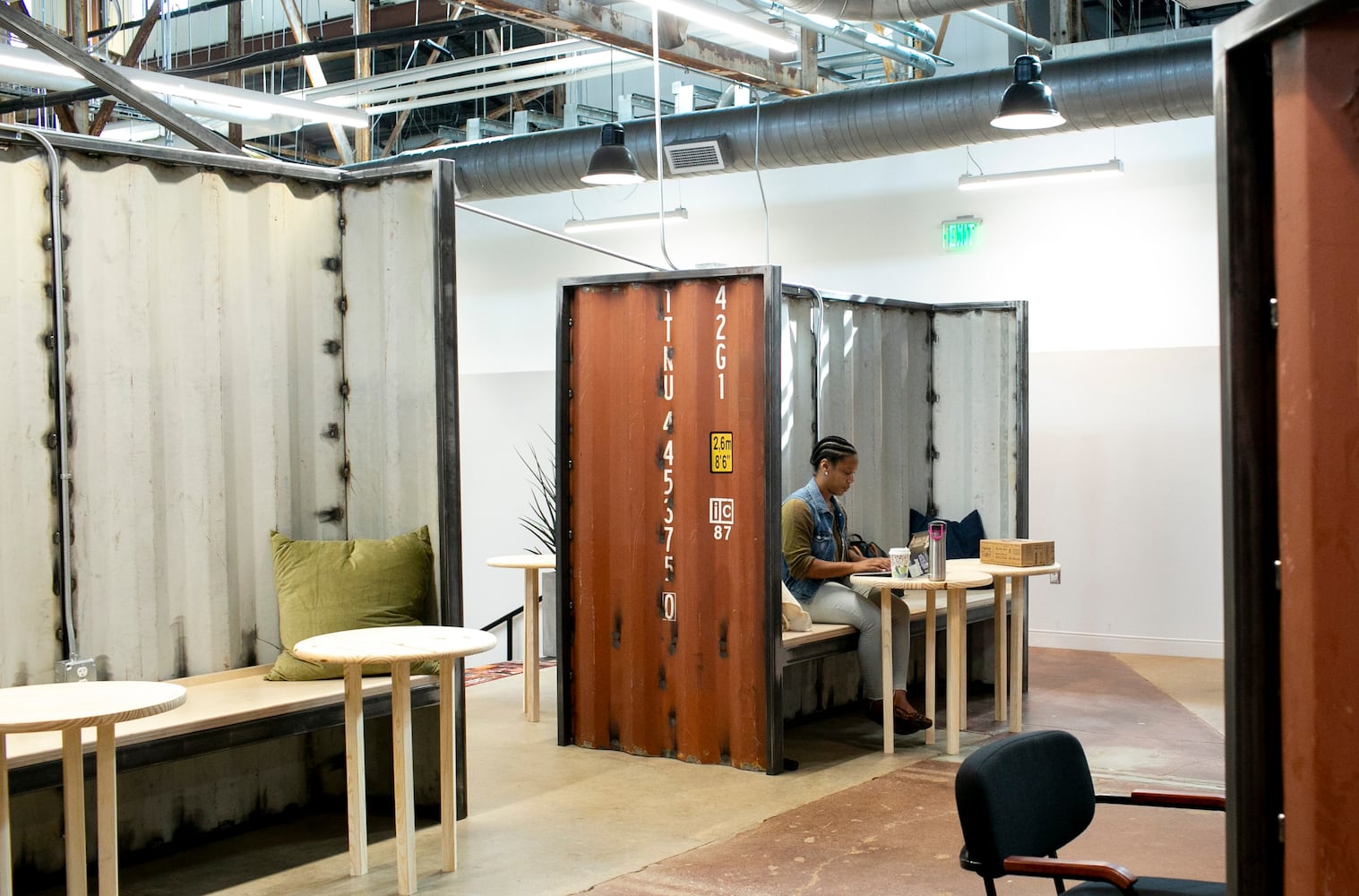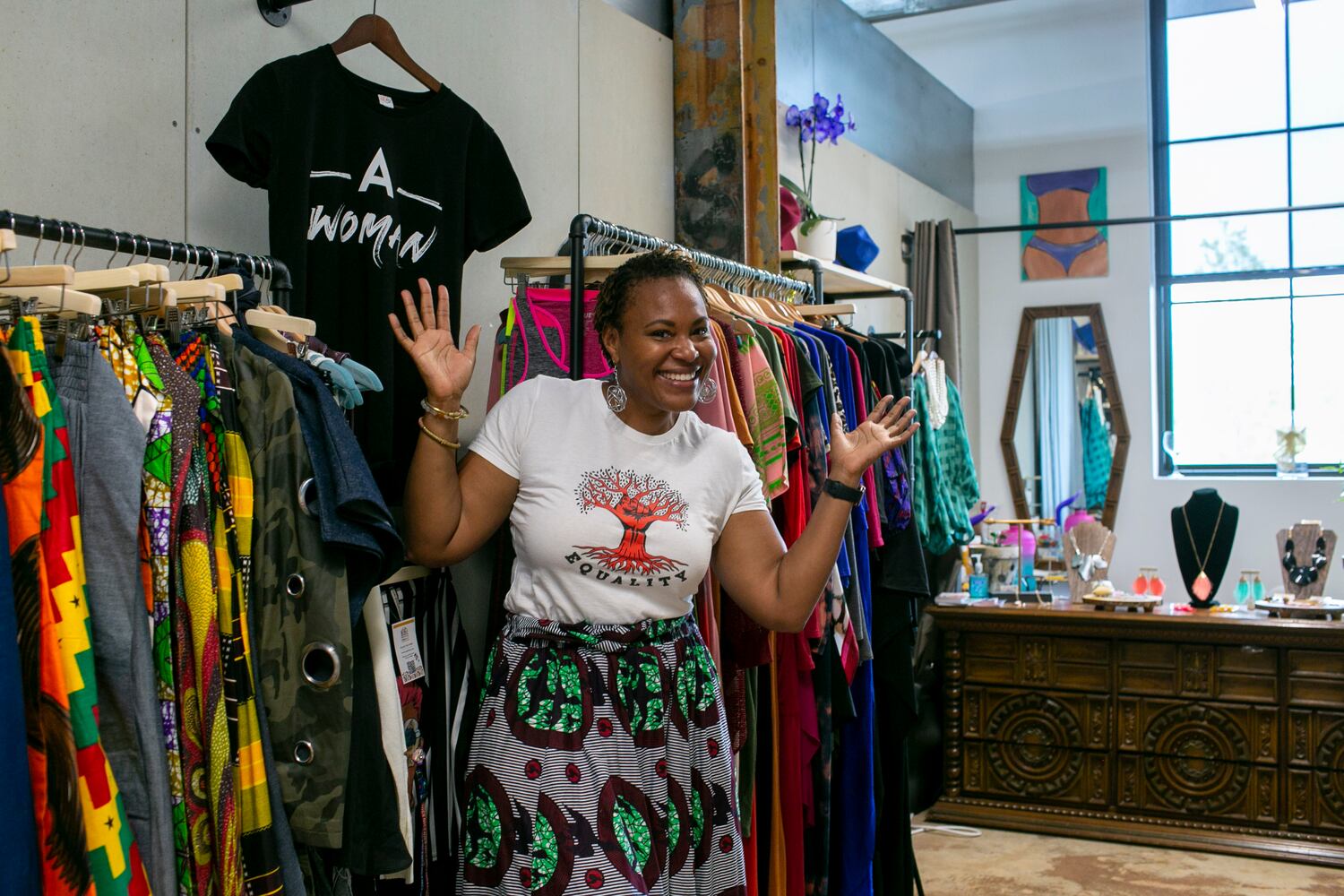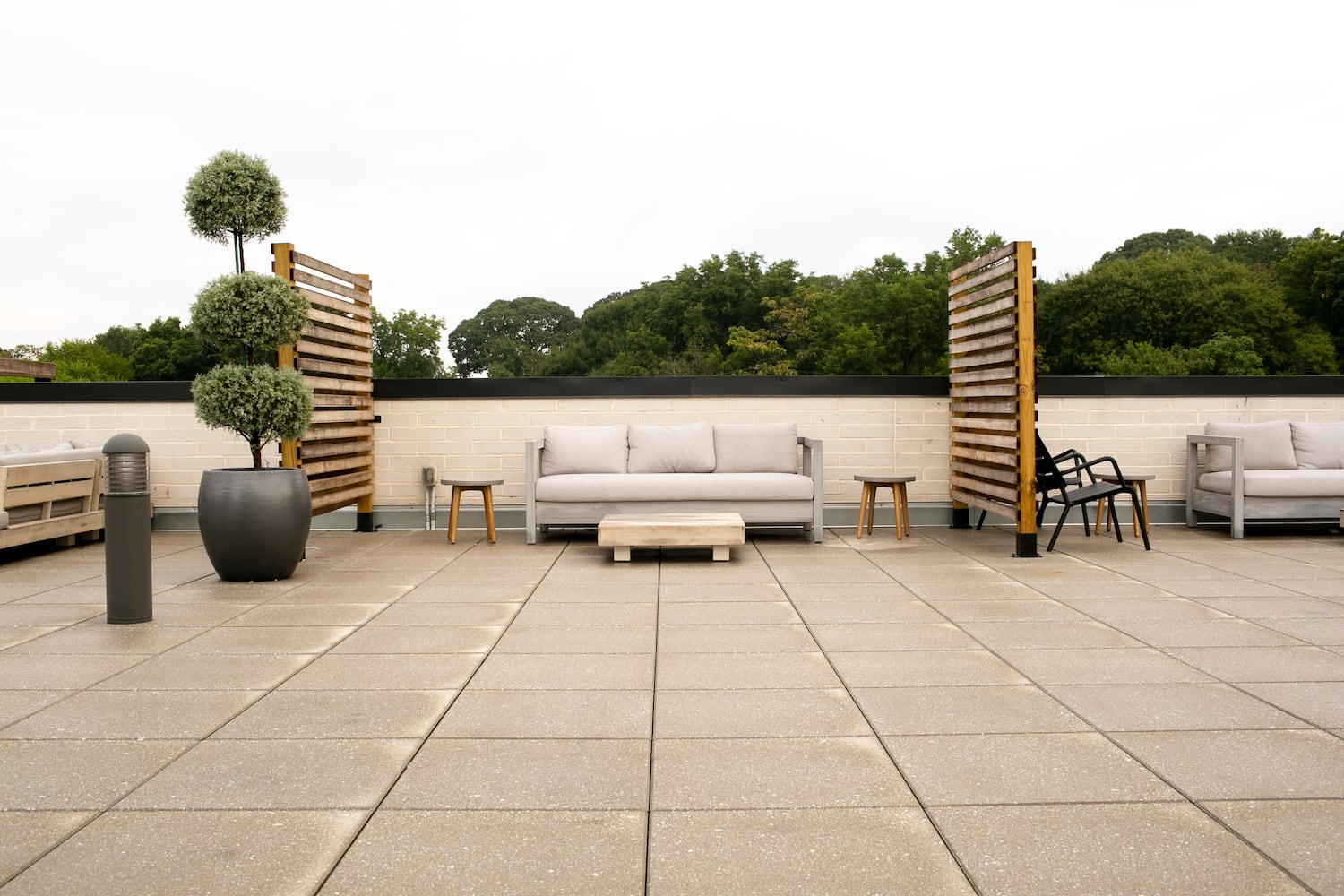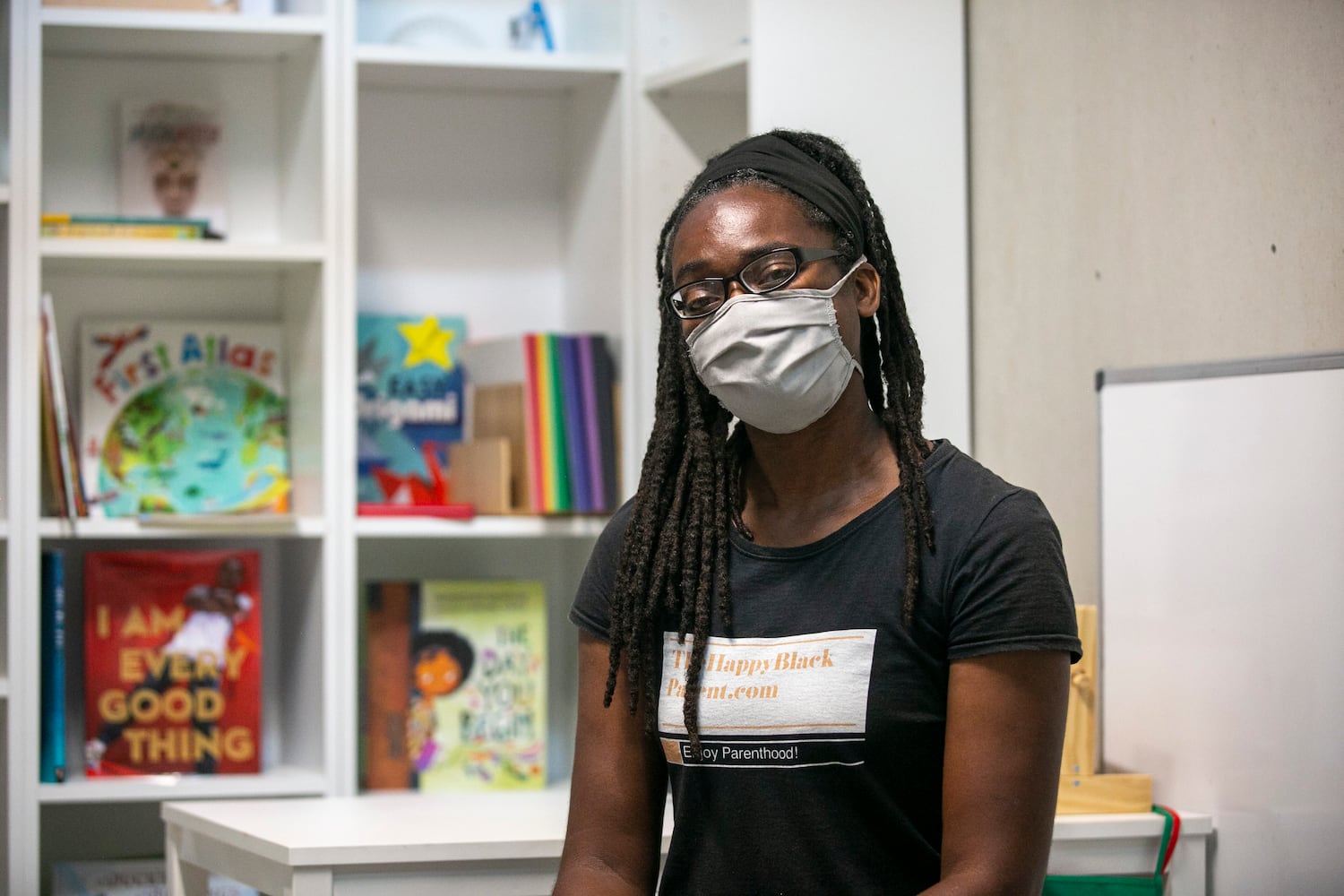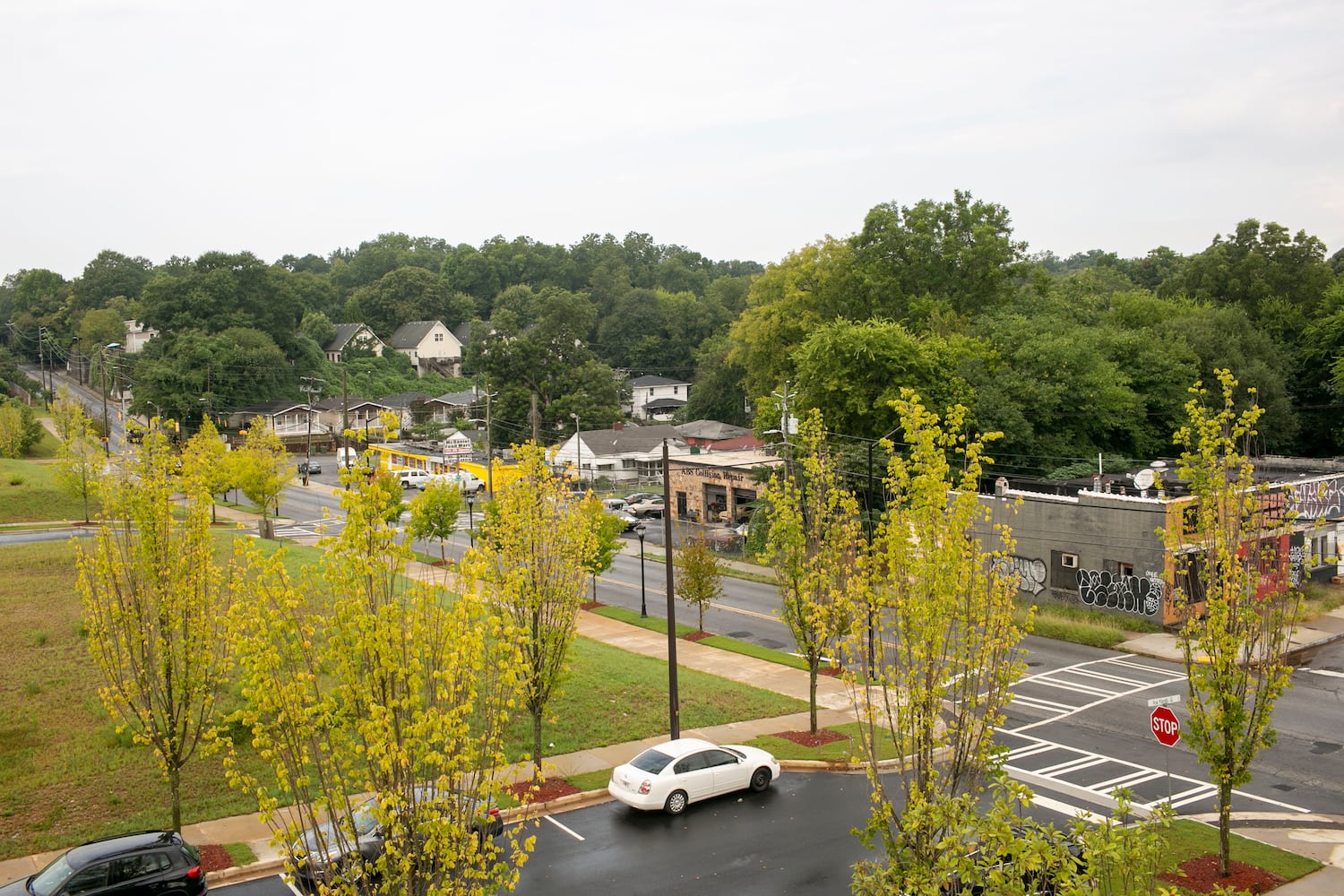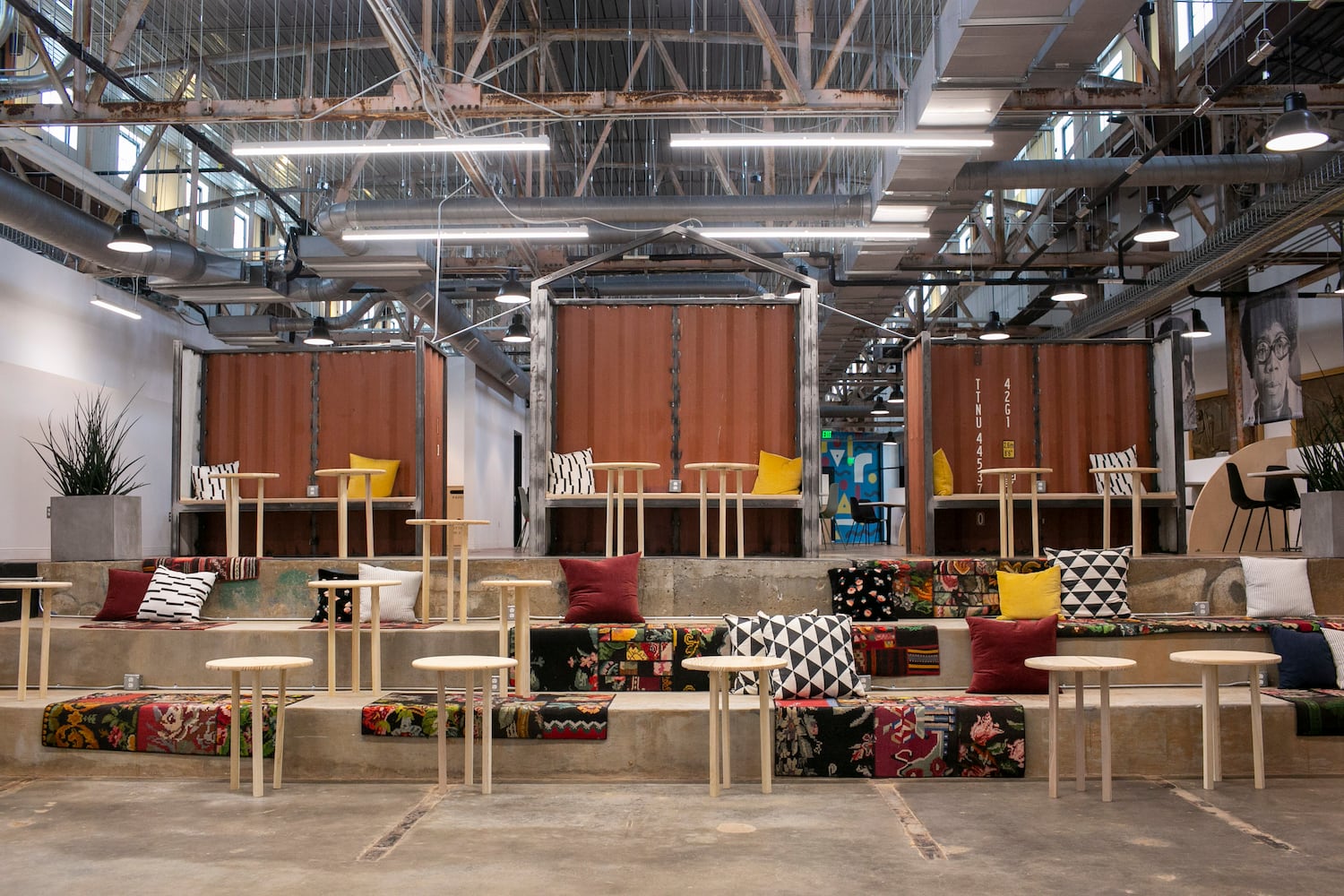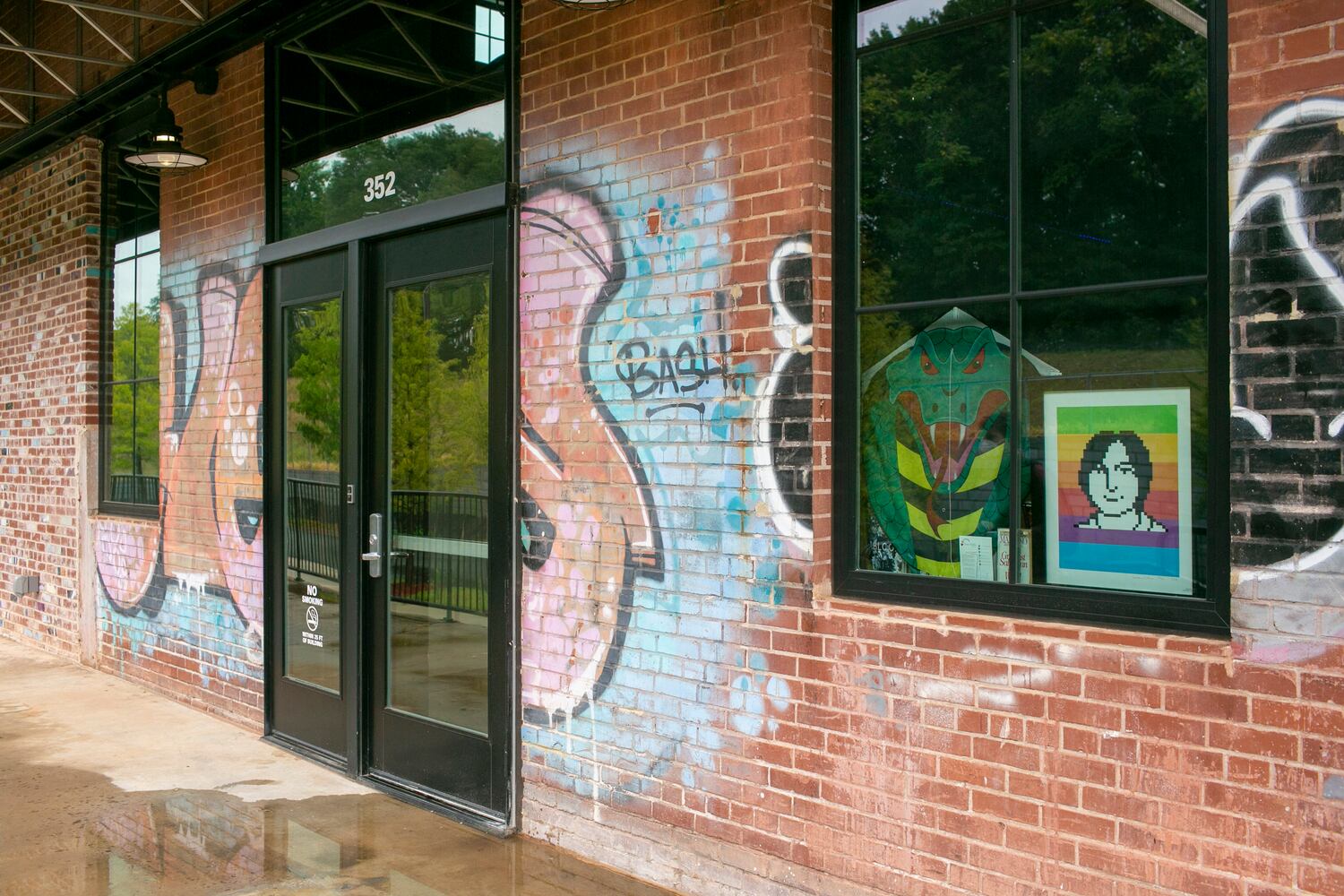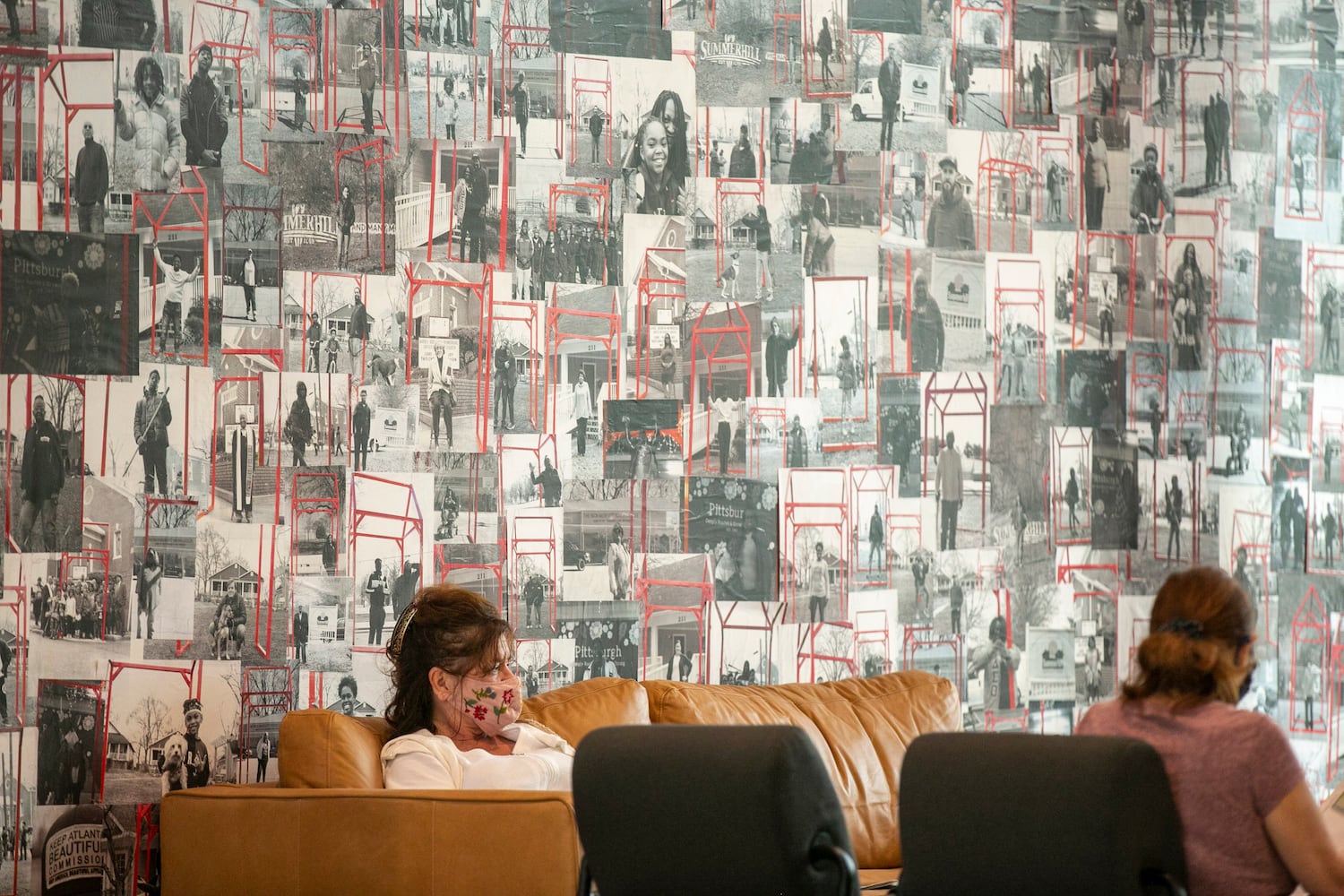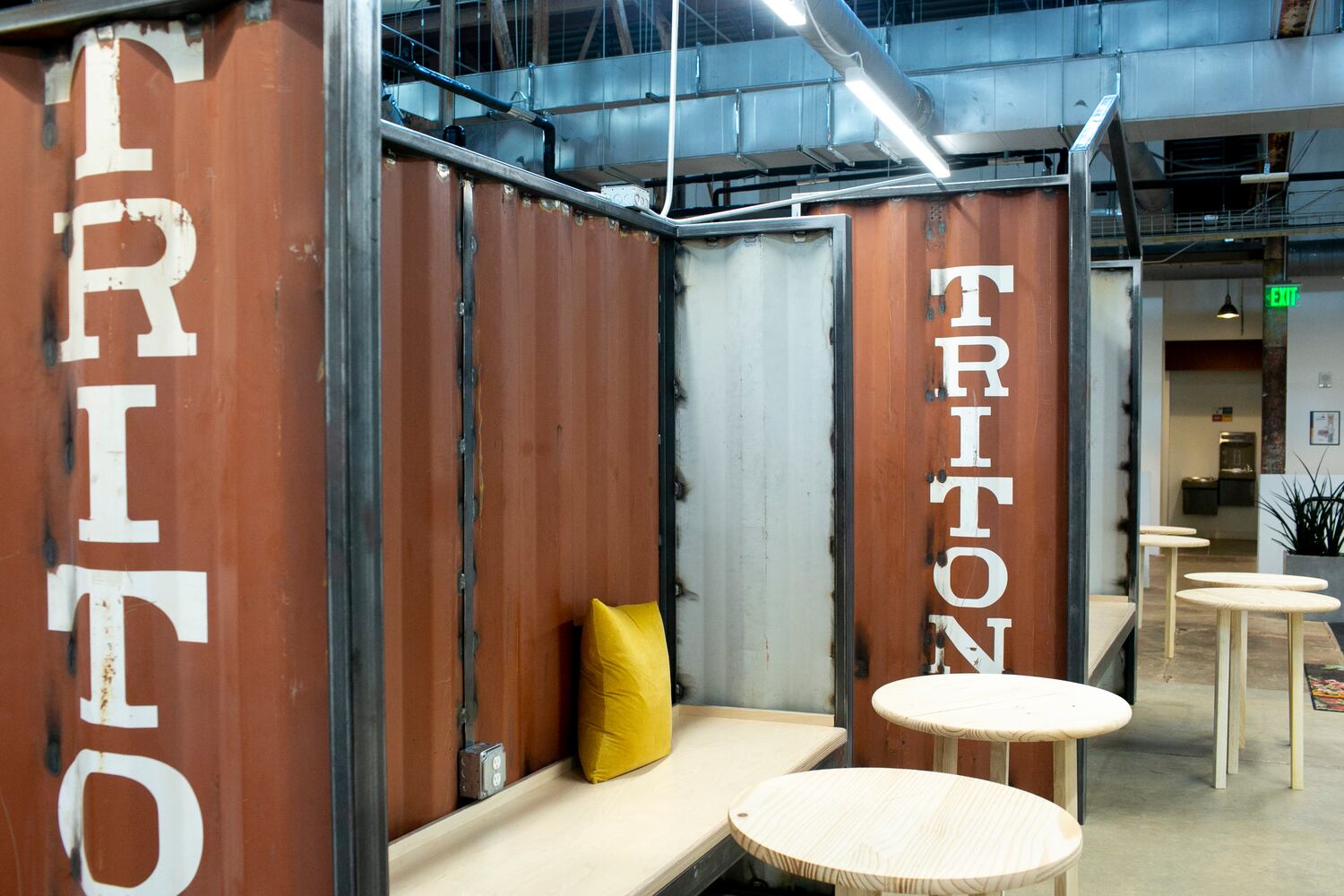When Monica Johnson was looking for a home in Atlanta two years ago, inexpensive options were slim. She finally settled on a place in the Pittsburgh neighborhood of southwest Atlanta, one of the few places in the city that still had affordable housing for renters with roommates.
That is no longer the case.
As the area has undergone rapid development and gentrification, Johnson said her lease agreement specifies a 3% rent increase every year, and the homeowner consistently receives offers from developers to buy the house for cash.
Johnson is watching the Atlanta mayor’s race and hoping someone has an answer.
“I feel like I’m just clinging to this house,” the 22-year-old food service worker said. “If there’s candidates that don’t have a plan for this problem, you know, it might be hard to trust them, or that’s not the candidate that I would want to put my vote toward or support.”
All of the major candidates have talked about the importance of affordable housing, but experts say no one can completely stop gentrification in Atlanta.
Johnson’s fears resonate with other Atlantans, new and old, who are afraid of being priced out of their homes. Rising home prices because of gentrification remain threats to many residents.
Like previous election cycles, housing affordability and gentrification have remained among the top concerns for many voters this year. In a recent AJC poll of 842 likely voters in the mayor’s race, affordable housing was identified as the second-most pressing issue in the city.
With good reason.
The Urban Displacement Project found that nearly half of all Atlanta neighborhoods experienced a rapid increase in housing costs from 2000 to 2017, a phenomenon that experts say is a direct result of increasing development in the city.
As Dr. Michael Leo Owens, an Emory University political science professor who specializes in urban politics, put it: “If you’re not harmed by gentrification, you think it’s great. If you’re harmed, you think it’s terrible.”
Credit: Ben Gray
Credit: Ben Gray
The Rev. Barbara Davis, who has lived in Atlanta for over five decades, said that she used to own several properties in the Pittsburgh neighborhood but has been forced to sell most, so she can afford to stay in the area.
Others, she said, were simply forced to move elsewhere.
“The original people, who’ve been here generation after generation, now we’re priced out,” Davis said. “We used to have cookouts and barbecues ... I used to know everybody on every corner on every street, but now I don’t even know 15 homeowners. I can’t walk the streets, because I’ll just cry.”
City officials have previously aimed to remedy longstanding housing affordability issues through building more housing units, freezing ever-increasing taxes for long-term residents and discouraging predatory practices from groups looking to redevelop parts of the city.
But the AJC poll, conducted by the University of Georgia’s School of Public and International Affairs, showed that 56% of respondents were critical of the city’s approach to affordable housing.
Owens said that the city’s development means gentrification is probably here to stay, regardless of who the next mayor is.
“Unless there’s going to be some incredible housing crisis that gets in the way … we should all pretty much believe that we’re going to see more gentrification and recognize that there’s going to be a lot of harm felt by a lot of people,” Owens said. “No one is going to adopt policies that are going to undermine growth.”
Mayoral candidates tout new, old plans
While running for mayor in 2017, a year marked by rising housing costs without the distraction of crime, Mayor Keisha Lance Bottoms famously set a goal: to invest $1 billion to create or preserve 20,000 affordable housing units by 2026.
Though discussions on housing affordability and gentrification have taken a back seat to crime, all five leading mayoral candidates said that housing issues remain priorities in their campaigns.
“Public safety is top of mind, is the top issue, and we have to address that and make sure everyone feels safe,” said Councilmember Andre Dickens. “But there’s also a real issue that we have around housing affordability: Working people just can’t afford housing in Atlanta anymore.”
Credit: Jenni Girtman
Credit: Jenni Girtman
As mayoral candidates pitch their own plans for improving affordable housing, some are looking to emulate Bottoms’ approach: Dickens, for example, said he would create or preserve 20,000 affordable housing units over eight years, rather than five.
Dickens hopes to slow property taxes for seniors, expand the city’s inclusionary zoning policy citywide, and put “unprecedented funding” towards housing with a $250 million affordable housing bond.
“Every development that we do, we have to give retention of the surrounding residents equal consideration,” Dickens said of slowing gentrification.
Former Mayor Kasim Reed also said he would preserve or build a minimum of 20,000 affordable units by 2026, keeping with Bottoms’ goal.
Reed aims to create an “office of anti-displacement” out of his administration that would “help deal with folks who are at risk of losing their property for small amounts of money.” Funding for that office would come from the city’s cash reserves, Reed said.
He also plans to audit all city-owned land in Atlanta to get a sense of what vacant properties could be built upon — something Reed said he wished he would have done during his first two terms as mayor.
“We should have moved to use the city’s real estate to build more affordable housing faster,” Reed said of his past administration.
Others, however, are taking a different approach.
City Council President Felicia Moore said she would not commit to spending a certain amount of money building a set number of housing units. But, Moore said, the 20,000 units is “something that is completely attainable.”
Moore instead wants to address income inequality, which she said is necessary to ensure people can afford to pay for housing. She is also open to increasing density in certain communities, though she does not want to implement “blanket rezoning” or eliminate single-family rezoning altogether.
“One thing we can do is make sure that we’re able to stabilize the neighborhoods we have and give them a lot of life cycle so that they can be affordable,” Moore said. “Gentrification, unfortunately, is a product of what’s happening in the market, and so the best that we can do is to try to keep our legacy residents on their properties as long as we possibly can.”
By “stabilizing neighborhoods,” Moore intends to ensure code enforcement is kept up in “declining” communities and analyze which neighborhoods need resources to combat possible “disrepair.”
Attorney Sharon Gay, on the other hand, said money alone cannot solve housing problems: “Money is a tool. It is not a strategy.”
Gay has repeatedly said she wants the city to be a more “active player” in housing discussions, stating that “the city just isn’t present at the table.” However, she did not specify what getting more people involved would entail.
Instead, she also encouraged that the city be “strategic about investing in neighborhoods” that are more run-down, pushing attractiveness efforts that experts said could further gentrify neighborhoods.
“A lot of neighborhoods have a lot of vacant housing and vacant land, and if we make those neighborhoods more attractive, there will be more housing,” Gay said.
Gay said she believed that public education would best protect legacy homeowners, saying that educating seniors could keep them informed to “make sure people know what their options and their rights are.”
Councilmember Antonio Brown, meanwhile, said he would lean into his prior experience being homeless as part of his housing strategy. He hopes to create a “Beloved Community,” an area featuring modular development that would feature a “diverse community of folks” with a healthcare provider at the center.
He doesn’t intend to follow through on Bottoms’ $1 billion promise, saying that the commitment was a “bit of a reach” and that his goal is to prevent, not halt, gentrification.
“We have to be real with ourselves, you’re not going to stop gentrification; too much damage has already been done,” Brown said. “We have to mitigate it by making sure we have programs in place to keep legacy residents in their homes.”
Brown and Dickens both said they would bring back a chief housing officer, a position created in late 2018 that lost funding earlier this year.
Every candidate said they would increase funds for Atlanta’s unhoused population.
Changing the status quo
Though candidates have put forth their strategies to increase land for affordable housing and assist long-term residents, experts like Owens remain skeptical that the city will stop gentrification altogether.
Larry Keating, professor emeritus at Georgia Tech’s School of City and Regional Planning, said Atlanta’s government has often focused on people with higher incomes who are looking for housing, rather than those who are most adversely affected.
“The city’s on fire with gentrification, it’s really substantial, and I would say the major response is murky and insufficient,” Keating said.
To alleviate gentrification, Keating said the city needs to define affordability according to who would be “most damaged.” That means putting forth policies that would benefit those at-risk from rising home prices, such as housing subsidies targeted towards low-income individuals.
Keating emphasized that “increasing market desirability” through tearing down old properties primarily occupied by low-income folks does not “focus on the problem.” He cited developments around the Beltline as an example of how new developments have raised surrounding communities’ prices.
“Destroying existing public housing, destroying existing housing in many neighborhoods that services poor people in the name of development is counterproductive,” Keating said. “It’s fueling gentrification— it’s not protecting people from it.”
Members of Community Movement Builders, an anti-gentrification group in the Pittsburgh neighborhood, said they are not optimistic that Atlanta will take the measures necessary to protect long-term residents.
“If development is knocking down malls and putting multi-million dollar condos or new hotels, ... then that’s a false sense of what development means; it means you’re catering to a certain class of people and their ideas about development,” said Kamau Franklin, the group’s founder.
Credit: AJC file photo
Credit: AJC file photo
Like Keating, Franklin believes the city needs to shift money from new developments to improving living conditions for long-term residents in neighborhoods facing a lack of resources. That includes dedicating “vast amounts of resources” towards affordable housing, taking vacant property and creating land trusts and limiting development around the Beltline, he said.
Franklin cited the public housing launched in the Mechanicsville neighborhood by the Reed administration as an example of what could be done in other communities. The area offers 74 single-family units, many of which receive low-income housing tax credit with rents capped at a maximum of 30% of the area median income.
“People are just scared that Atlanta isn’t for them anymore, and I think the city and the politicians in office have sold out working classes and poor black people in the city,” Franklin said. “I expect them to continue to do so unless enough pressure is put on them to do otherwise.”
About the Author
The Latest
Featured
